Idomeneus at the Gate Theatre
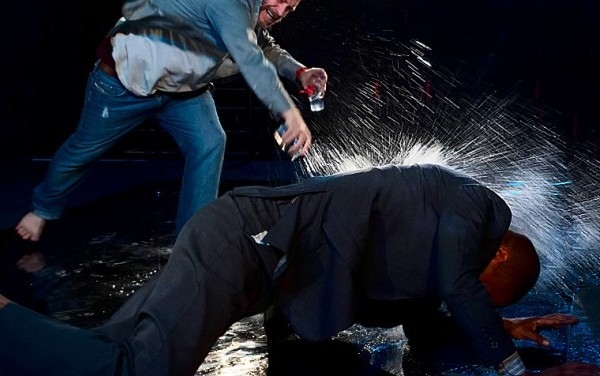
Greek mythology is sized down within the close quarters of Notting Hill’s Gate Theatre, a wonderfully small venue for a play of such epic proportions. The work is inspired by Homer’s Iliad, which refers to the myth of Idomeneus – a symbol of strength, a king of Crete who led the Cretan army in the Trojan War. Upon returning from the war Idomeneus’ ship is caught in a violent storm at sea. In order to save it and its crew from imminent doom, Idomeneus makes a pledge to Poseidon that if the ship is spared he will kill the first living thing he comes across upon his arrival home, and it happens to be his son. Idomeneus duly commits this sacrifice, killing his son, only to forever incur the wrath of the gods for his actions.The myth of Idomeneus is recounted in the style of an epic but is expertly condensed in this well-paced hour and a bit-long play, layered with a very humorous and relatable dialogue.
German Roland Schimmelpfennig’s growing reputation as one of Europe’s finest living playwrights is understandable if this one is anything to go by. The production has been bolstered here by its simplicity, and the quality of the acting on display. Ex-Eastender Mark Monero put in a particularly eye-catching performance, while the rugged Jon Foster was the source of many comical rejoinders. The play opens in a very peculiar manner, catching the audience off-guard: a model ship hangs unassumingly ghostlike in the centre of the stage, the focal point of attention. In come the actors one by one, entering through a little porthole as they gaze (along with the audience) upon the ship like people in an art gallery looking on a piece of art – a move that helps to instigate a participatory and active audience.
Director Ellen McDougall has downsized the number of actors that would usually be required to take to the stage for this production in order to fit the intimate surroundings of the Gate Theatre. The five actors who make up the chorus of voices that recount the story of Idomeneus thrive under such direction, and this was a simplistic touch to a play with a dialogue that can be quite bamboozling at times. There is no lead role as the play rapidly switches between actors playing Idomeneus. At times speaking over one another, each actor embodies and analyses Idomeneus and his actions as they recount his story. There is a great rawness to this production and by the end the audience has truly absorbed Idomeneus, and his journey, as the stage is drenched in water, blood and guilt.
Thoralf Karlsen
Idomeneus is at the Gate Theatre until 19th July 2014. For further information or to book visit the theatre’s website here.


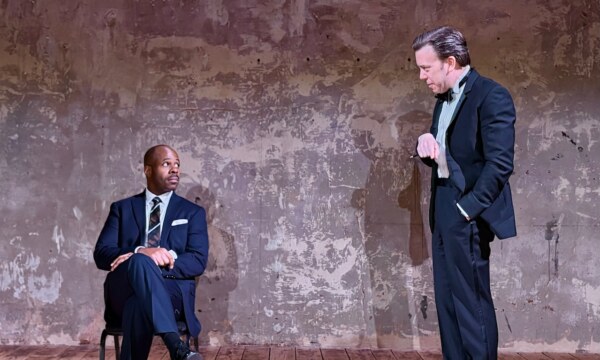




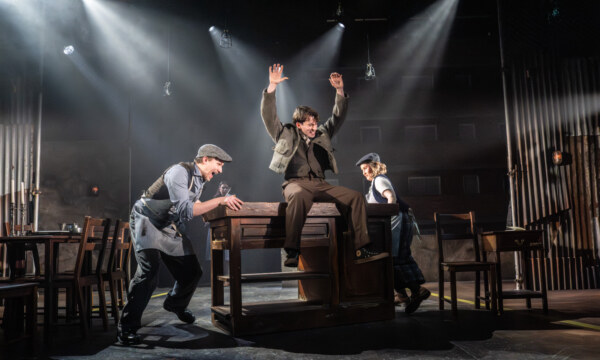

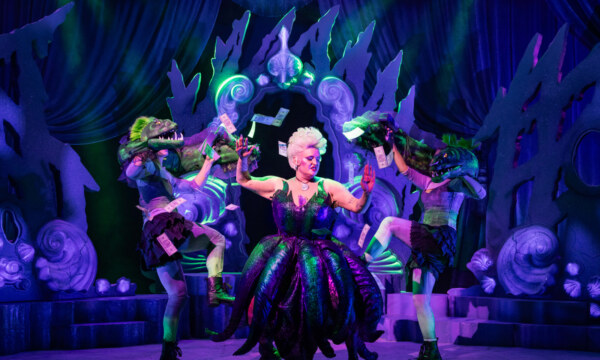



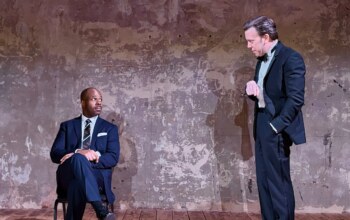











Facebook
Twitter
Instagram
YouTube
RSS